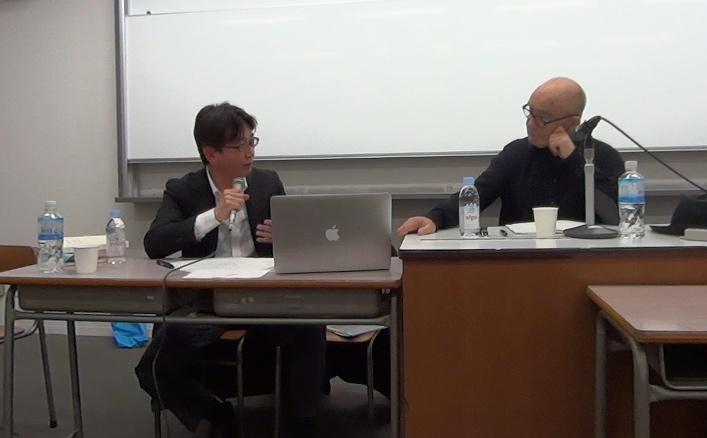Research HighlightsCommunity & LoveProf. Takashi IchikawaDepartment of French LiteratureApr. 1, 2020

In recent years I have been studying the themes of community and love. This topic, however, has been discussed by philosophers since the times of ancient Greece. In contemporary French thought, questions about community were raised as the ideological conflict between the Soviet bloc and Western powers was coming to a close at the end of the 1980s. Around the same time, the concept of love, which until that point had referred solely to amorous love, began to attract renewed attention. As we consider the interrelationship between these kinds of themes, we must question relationships of love, friendship, and sexuality. These include the love between two individuals and even the concepts of fraternity and philanthropy, which connect countless numbers of people together. In particular, my work deals with contemporary philosophers who consider the mechanisms of the democratic and popular movements that have intensified in countries around the world since 2009.
My current research lies along the following two axes.
1. I read the writings of writers and thinkers like Georges Bataille, Maurice Blanchot, and Jean-Paul Sartre, among others, who were active in the 1930s, when ideologies like communism and fascism had their meteoric rise. I try to understand what the characteristics of an ideal society would be within, and in opposition to, their ideological frameworks. This allows me to consider what kinds of human understanding were based on academic fields like existential philosophy, psychoanalysis, and anthropology, which were just emerging at the time.
2. I draw on the socio-political theories of Bataille and others from the 1930s and deal with the community theories of Maurice Blanchot, Jean-Luc Nancy, and Jacques Derrida from the 1980s onward to question the extent of critical consideration into Bataille’s attempt to connect his concepts of the “community of lovers” with that of “social community.” In The Unavowable Community, Blanchot draws similarities of “connection via disconnection” between lonely lovers depicted in the modern novel and his experiences participating in Mai 68—the political movements in France during May 1968. Those events had, at their core, a spontaneous community of anonymous people who gathered and dispersed without adherence to any particular political party. However, in The Disavowed Community, Nancy points out how these attempts elevate unshareable sexual pleasures as privilege and also mystify and depoliticize community, isolating it from real social movements. In 2017, I held a symposium with Jean-Luc Nancy at Keio to discuss this issue in further detail.
Derrida, on the other hand, argues in The Politics of Friendship that since ancient times, philosophical thinking about love and friendship has referred to relationships of love between brothers along the lines of kinship and locality as the privileged model of friendship. Guided by these authors and their works, I continue to conduct a thorough investigation of the concepts of love and friendship in the Western philosophical tradition. At the same time, I seek to clarify the relationship that brotherly love, or ”loving thy neighbor as thyself,” has toward the other actions associated with the desire of love, such as uniting, possessing, gifting, and building. Moreover, based on the ideas of democracy presented by such as Jacques Rancière and Alain Badiou, I try to contrast the differences of love and friendship between individuals with fraternity and philanthropy among groups.


